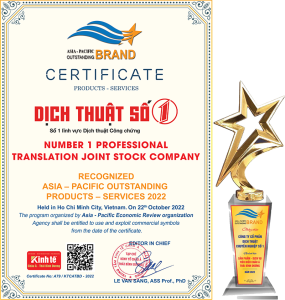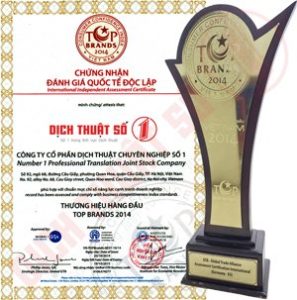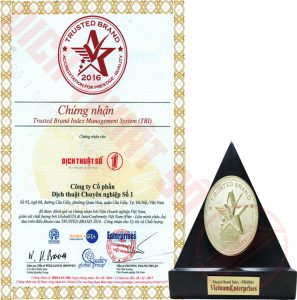Vietnamese people will have difficulty watching foreign TV channels that are not well translated. Users will benefit if stations increase the number of foreign channels with Vietnamese subtitles.
Editing, translation Foreign TV channels will bring practical benefits to users because few people are able to watch and understand all foreign channels without Vietnamese subtitles.
Reduce disadvantages for users
It can be said that the omission translation and subtitling foreign TV channels will bring clear benefits to viewers. For example, since August 2005, HBO has been able to subtitle 3 films/week, Max has 3 subtitled films/week, but by this year, 100% feature films distributed through these channels have Vietnamese subtitles. Each day, these two channels alone have up to 48 hours of feature films with Vietnamese subtitles, if the rotation frequency is 3 times/day, there will be up to 16 hours of film, each film is 2 hours, which is 8 films/day.
“Vietnamizing” foreign TV channels is one of the moves to reduce damage to viewers. Because for a long time, pay TV providers have focused on providing the number of channels and have forgotten about the quality of the content. Stations compete to announce the number of channels from 60 to 130 channels, but in reality there are many channels that are as good as non-existent. Because not all viewers are able to understand all foreign channels, from English, Russian, Chinese, Korean, etc. Therefore, although they have to pay to buy many channels, in reality, customers can only watch and understand the content of about 1/2 or even 1/3 of the number of channels provided.
Ms. Tran Thi Phuong, 65 years old (group 6, Khuong Dinh ward, Thanh Xuan, Hanoi) said that her family has been using VTV cable TV (VTVcab) for 10 years now, the price has increased several times. From 45,000 VND/month, it has now increased to 110,000 VND/month. There are many channels, but many foreign channels do not have Vietnamese subtitles, so she and her husband have never had the opportunity to watch them. "Currently, the number of feature films and science channels with Vietnamese subtitles is increasing, helping us to be less disadvantaged than before," Ms. Phuong said.
Similarly, Mr. Pham Chi Cong (in University Village urban area, Phuoc Kien, Nha Be, Ho Chi Minh City) has been using SCTV cable television service since 2008. Although he has a university degree in English, Mr. Cong said that he still cannot listen to and understand all the content of the foreign television channels that he has paid for. According to Mr. Cong, increasing the content with Vietnamese subtitles is necessary and ensures the rights of television service users.
The stations are trying to implement "Vietnamization"
In fact, up to now, there are only a total of 29 licensed program channels. And some units such as K+ and FPT have proactively cut off some unlicensed foreign channels.
Most pay TV service providers, when asked about the difficulties in implementing this regulation, refused to comment because they considered it a “sensitive issue”. Representatives of pay TV service providers said they would try to implement the Government’s regulations at the highest level.
Sharing with ICTnews about the difficulties in implementing the Vietnamization of foreign TV channels, a representative of VTC Digital Television said that the common difficulty of the stations is to have enough human and technical resources for editing and translating. For example: the translation quality must be good, the price must be affordable and most importantly, the channel must be able to obtain a license from the Ministry of Information and Communications.
According to the Government’s regulations, only TV stations or units authorized by the stations can apply for licenses. In addition, these agencies must also be trusted and cooperated by foreign TV channels in editing and translating. Therefore, foreign TV stations have chosen VTV and Qnet.
However, providers have the right to broadcast through licenses from other entities. After foreign channels have broadcasting licenses and editing and translation licenses in Vietnam, stations or pay TV providers will buy back broadcasting rights through channel representatives in Vietnam. Qnet is currently the distribution representative of more than 20 international TV channels in Vietnam.
According to a leader of Viettel Cable Television Center (providing NextTV television service), businesses providing pay television services such as Viettel, VNPT, FPT... are not press agencies, so it is difficult for them to have enough conditions to apply for content licenses for each channel. Therefore, Viettel chose to buy back the broadcasting rights from Qnet. This increases costs for the business but there is no obstacle in buying broadcasting rights if the channel provider has enough licenses.
Reduced from 4 to 2 types of channels requiring translation licenses
According to the provisions of Articles 13 and 14 of the Regulations on management of pay television activities (issued under Decision No. 20/2011/QD-TTg of the Prime Minister), in order to be broadcast in Vietnam, foreign television channels must be granted editing and translation licenses. Specifically, there are four types of foreign program channels on pay television that must be translated and summarized as follows: For feature film channels, 100% of program channel content must be translated; for news channels, 100% of program channel content must be translated; for science and education channels, 100% of news program content must be translated; for general channels, general entertainment channels, sports and music channels, 100% of news programs, reports and documents must be translated.
According to this Regulation, foreign television channels can only be broadcast when they have been edited, translated and censored by a press agency in the television field and this regulation officially takes effect from November 15, 2012. The reason for such a regulation is to ensure that the content of the channels does not violate the provisions of Vietnamese law on the press.
However, due to difficulties in implementing these regulations, by November 15, 2012, only 16/75 foreign TV channels met the requirements and were licensed by the Ministry of Information and Communications. To remove obstacles for businesses providing pay TV services, the Ministry of Information and Communications proposed to the Government and was approved to extend the implementation of the regulations until May 15, 2013. Then, on March 29, 2013, based on the proposal of the Ministry of Information and Communications, the Prime Minister issued Decision 18a/2013/QD-TTg, reducing from 4 to 2 types of channels that must be translated, specifically: translating 100% content of feature film channels; translating 100% reportage and documentary programs of general entertainment channels, sports channels, and music channels. This Decision takes effect from May 15, 2013.
The regulations also clearly stipulate that the unit applying for editing and translation permission must be a press agency with a license to operate in the field of television. At the same time, it must have personnel meeting the requirements of professional journalistic qualifications and foreign language proficiency appropriate to the foreign program channel for which editing permission is requested. That agency must have technical capacity (including a system of slowing equipment, storage equipment, and technical means of signal reception and transmission suitable for editing the program channel); ensuring that the editing and translation work is completely carried out in Vietnam.
according to: khoahocphothong.com.vn








